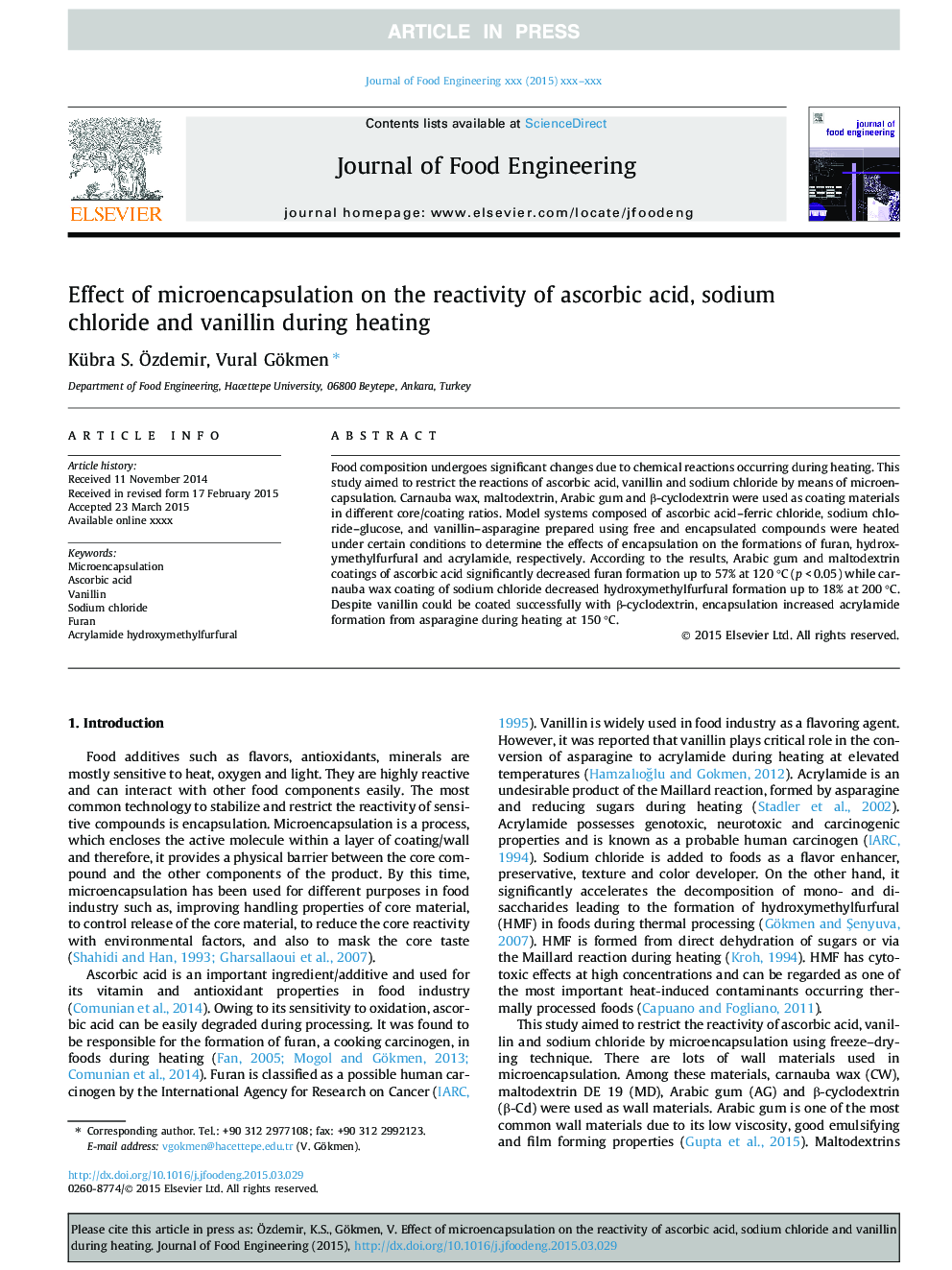| کد مقاله | کد نشریه | سال انتشار | مقاله انگلیسی | نسخه تمام متن |
|---|---|---|---|---|
| 10277250 | 464302 | 2015 | 6 صفحه PDF | دانلود رایگان |
عنوان انگلیسی مقاله ISI
Effect of microencapsulation on the reactivity of ascorbic acid, sodium chloride and vanillin during heating
ترجمه فارسی عنوان
تأثیر میکروکاپسولاسیون بر روی واکنش پذیری اسید آسکوربیک، کلرید سدیم و وانیلین در طی گرمایش
دانلود مقاله + سفارش ترجمه
دانلود مقاله ISI انگلیسی
رایگان برای ایرانیان
کلمات کلیدی
موضوعات مرتبط
مهندسی و علوم پایه
مهندسی شیمی
مهندسی شیمی (عمومی)
چکیده انگلیسی
Food composition undergoes significant changes due to chemical reactions occurring during heating. This study aimed to restrict the reactions of ascorbic acid, vanillin and sodium chloride by means of microencapsulation. Carnauba wax, maltodextrin, Arabic gum and β-cyclodextrin were used as coating materials in different core/coating ratios. Model systems composed of ascorbic acid-ferric chloride, sodium chloride-glucose, and vanillin-asparagine prepared using free and encapsulated compounds were heated under certain conditions to determine the effects of encapsulation on the formations of furan, hydroxymethylfurfural and acrylamide, respectively. According to the results, Arabic gum and maltodextrin coatings of ascorbic acid significantly decreased furan formation up to 57% at 120 °C (p < 0.05) while carnauba wax coating of sodium chloride decreased hydroxymethylfurfural formation up to 18% at 200 °C. Despite vanillin could be coated successfully with β-cyclodextrin, encapsulation increased acrylamide formation from asparagine during heating at 150 °C.
ناشر
Database: Elsevier - ScienceDirect (ساینس دایرکت)
Journal: Journal of Food Engineering - Volume 167, Part B, December 2015, Pages 204-209
Journal: Journal of Food Engineering - Volume 167, Part B, December 2015, Pages 204-209
نویسندگان
Kübra S. Ãzdemir, Vural Gökmen,
